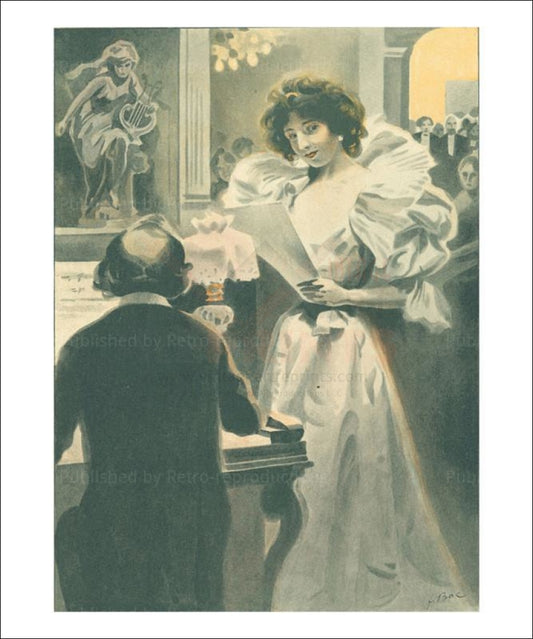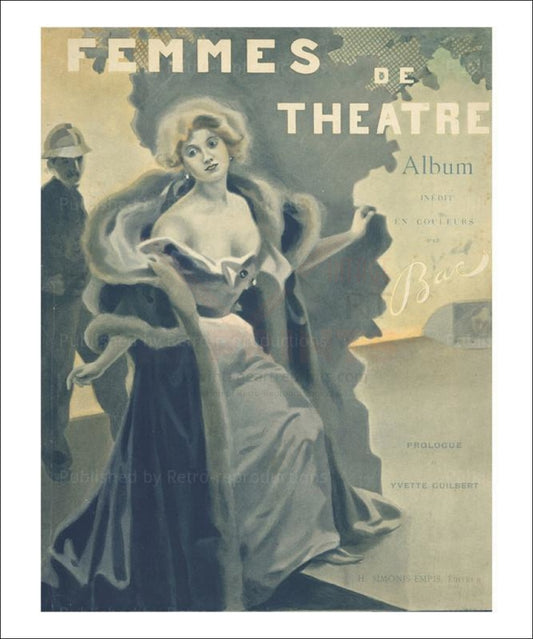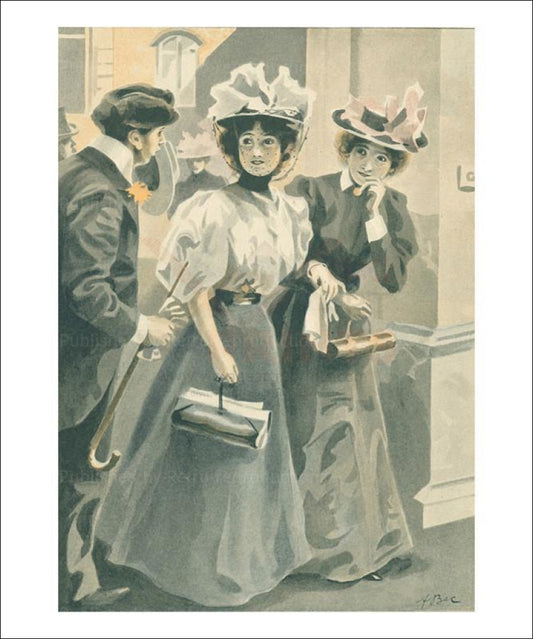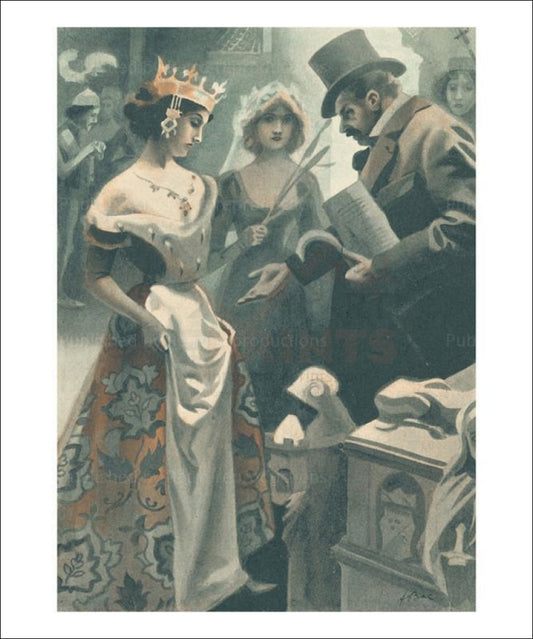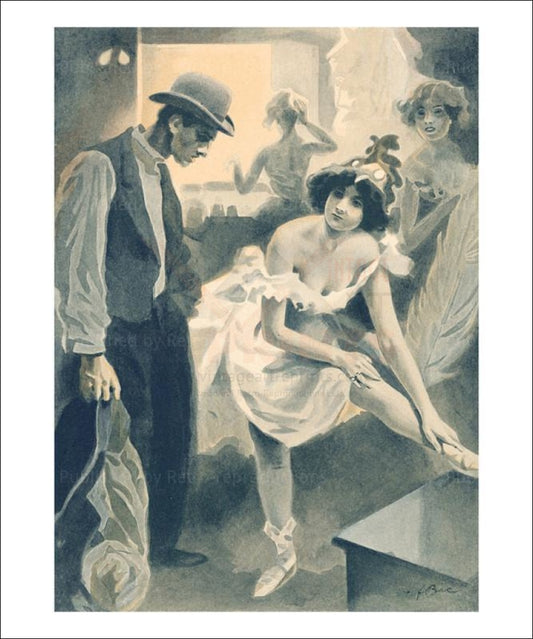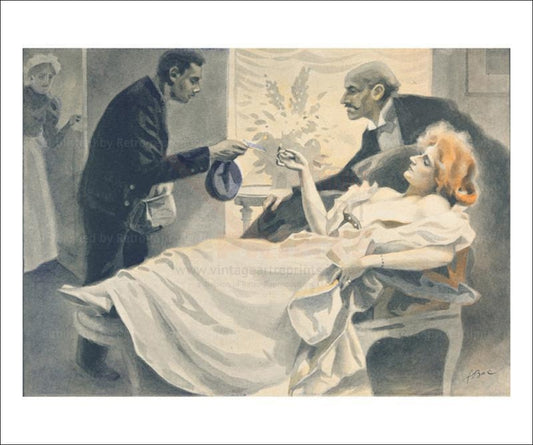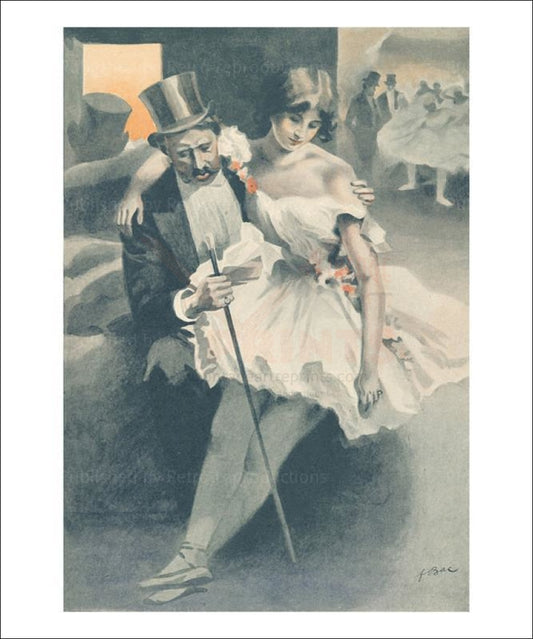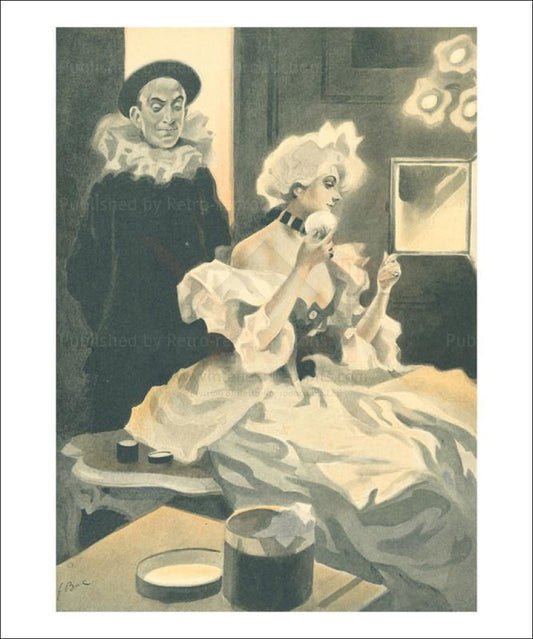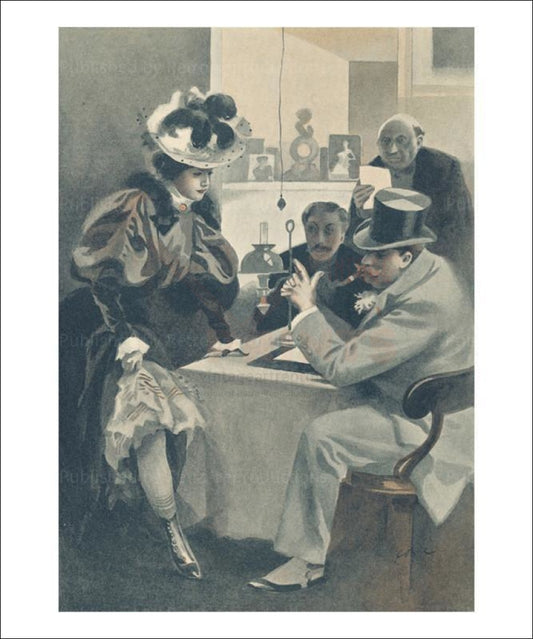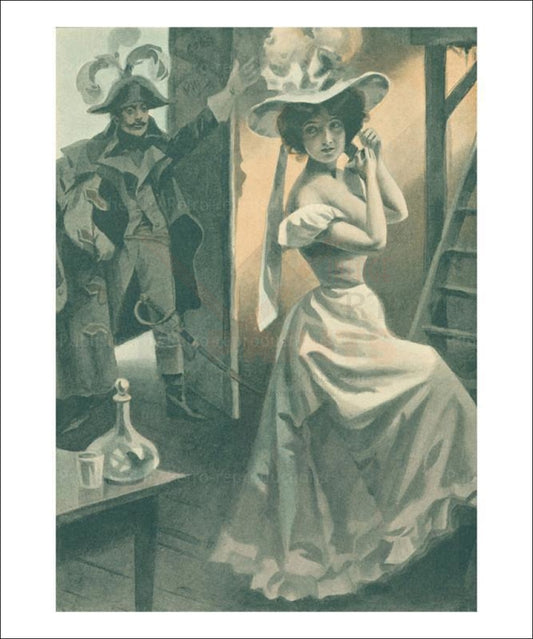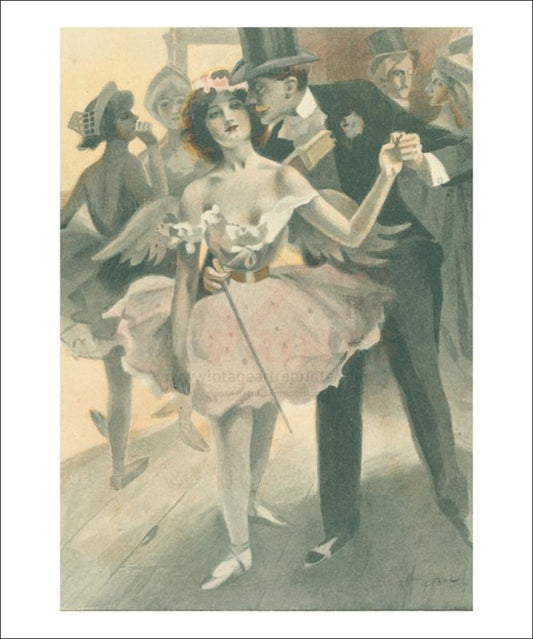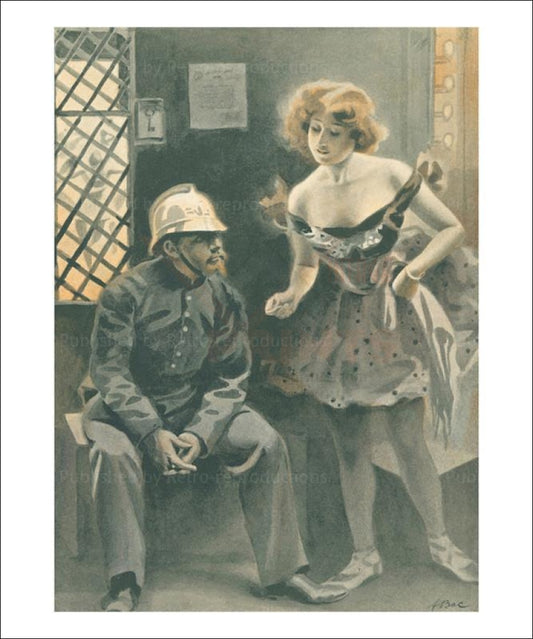Collection: Femmes de Theatre
Before 1630, an honest woman did not go to the theater. Unlike England, France placed no restrictions on women performing on stage, but the career of actors of either sex was seen as morally wrong by the Catholic Church (actors were excommunicated ) and by the ascetic religious Jansenist movement.
The major battle of romanticism in France was fought in the theater, but was not against the theater. The early years of the 19th century were marked by a revival of classicism and classical-inspired tragedies, often with themes of national sacrifice or patriotic heroism in keeping with the spirit of the Revolution, but the production of Victor Hugo's Hernani in 1830 marked the triumph of the romantic movement on the stage (a description of the turbulent opening night can be found in Théophile Gautier). The dramatic unities of time and place were abolished, tragic and comic elements appeared together and metrical freedom was won. Marked by the plays of Friedrich Schiller, the romantics often chose subjects from historic periods (the French Renaissance, the reign of Louis XIII of France) and doomed noble characters (rebel princes and outlaws) or misunderstood artists (Vigny's play based on the life of Thomas Chatterton).
-
Femme de Theatre 1
Regular price From $39.00 USDRegular priceUnit price / per -
Femme de Theatre 2
Regular price From $39.00 USDRegular priceUnit price / per -
Femme de Theatre 4
Regular price From $39.00 USDRegular priceUnit price / per -
Femme de Theatre 5
Regular price From $39.00 USDRegular priceUnit price / per -
Femme de Theatre 6
Regular price From $39.00 USDRegular priceUnit price / per -
Femme de Theatre 7
Regular price From $39.00 USDRegular priceUnit price / per -
Femme de Theatre 8
Regular price From $39.00 USDRegular priceUnit price / per -
Femme de Theatre 9
Regular price From $39.00 USDRegular priceUnit price / per -
Femme de Theatre 10
Regular price From $39.00 USDRegular priceUnit price / per -
Femme de Theatre 11
Regular price From $39.00 USDRegular priceUnit price / per -
Femme de Theatre 12
Regular price From $39.00 USDRegular priceUnit price / per -
Femme de Theatre 3
Regular price From $39.00 USDRegular priceUnit price / per

